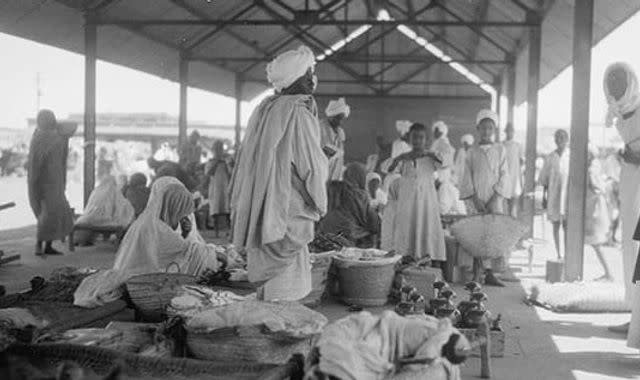Destruction of Sudan's most iconic street market is a massacre of memory and communal life

Souq Omdurman was the beating heart of our mother city. It was a traders' paradise, a meeting point and a lifeline.
A market where more than money exchanged hands. Agreements, ideas and jokes were yelled across its avenues and as visitors passed through, they were either beckoned into the shops or scoffed at for interrupting the banter.
Every trip was an excursion.
My friends and I went for the silver, antique records and leather. Our mothers went for spices, kitchenware and gold. Their mothers went for that and more, and their mothers before them too.
Our grandmothers and great-grandmothers went for different goods in a different era but at the same market with the same streets at the same iconic spot.
"All our memories are in Souq Omdurman. Our entire childhood was in Souq Omdurman - then we got older and brought our wedding things from there too," my mother tells me on the phone from Cairo.
She lost her home in Khartoum overnight and now, the home of her founding moments.
After standing for more than a century, the market has been desecrated and destroyed.
Looted and pillaged by the Rapid Support Forces (RSF) in the early days of the war and then shelled, punctured with bullets and burnt to black in their ensuing battles with the army.
The cupboards of the gold shops were still open when we arrived. An emptied ring tray flattened on the ammunition-covered ashen ground.
At the corner facing the bullet-hole-ridden bus stop, the front of a wedding shop is littered with broken incense holders in traditional Sudanese scarlet synonymous with brides.
A nearby unexploded mortar round sat slanted on the debris and an upside-down fuschia couch blocked the road with dystopian absurdity.
It was there that I wept - out of disbelief and grief - as gunfire rang out a few hundred metres away.
Sounds, sights and smells I would never attach to this place had assaulted my senses all at once.
The loss is generational. Livelihoods and legacies shattered like the store-front glass.
An agony felt most by the shop owners and residents that once lined the streets, radiating outwards to all that walked them.
The heart of our city has stopped beating. The veins have emptied and the pulse has flatlined.
The destruction of Souq Omdurman is a massacre of memory and communal life. A casualty that even peace will struggle to restore.

 Yahoo News
Yahoo News 
